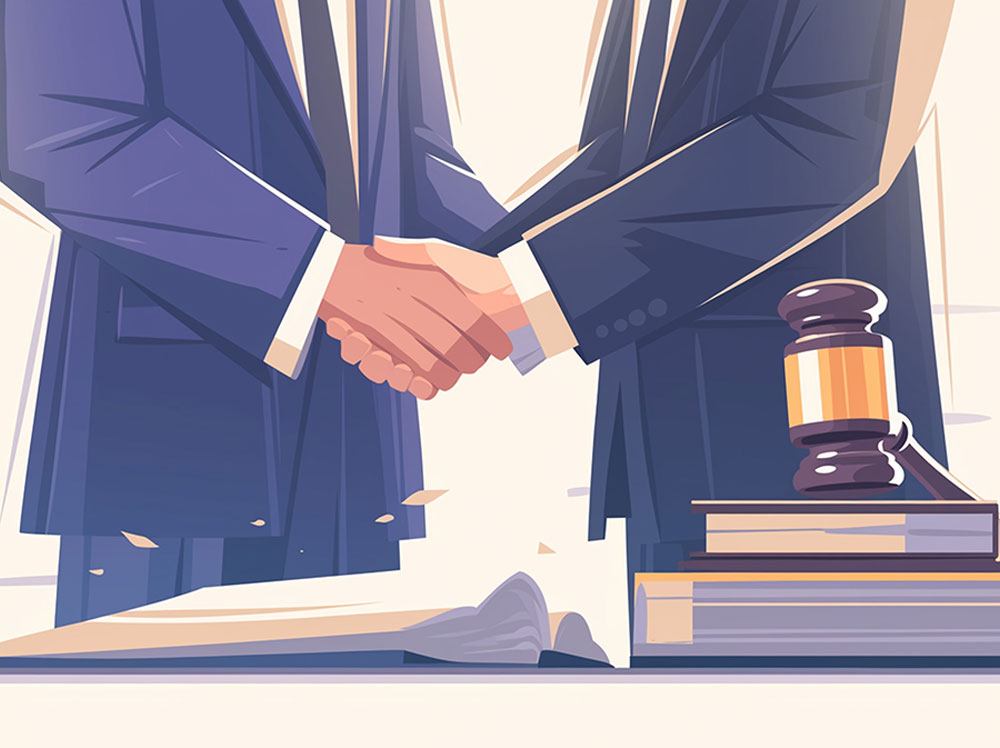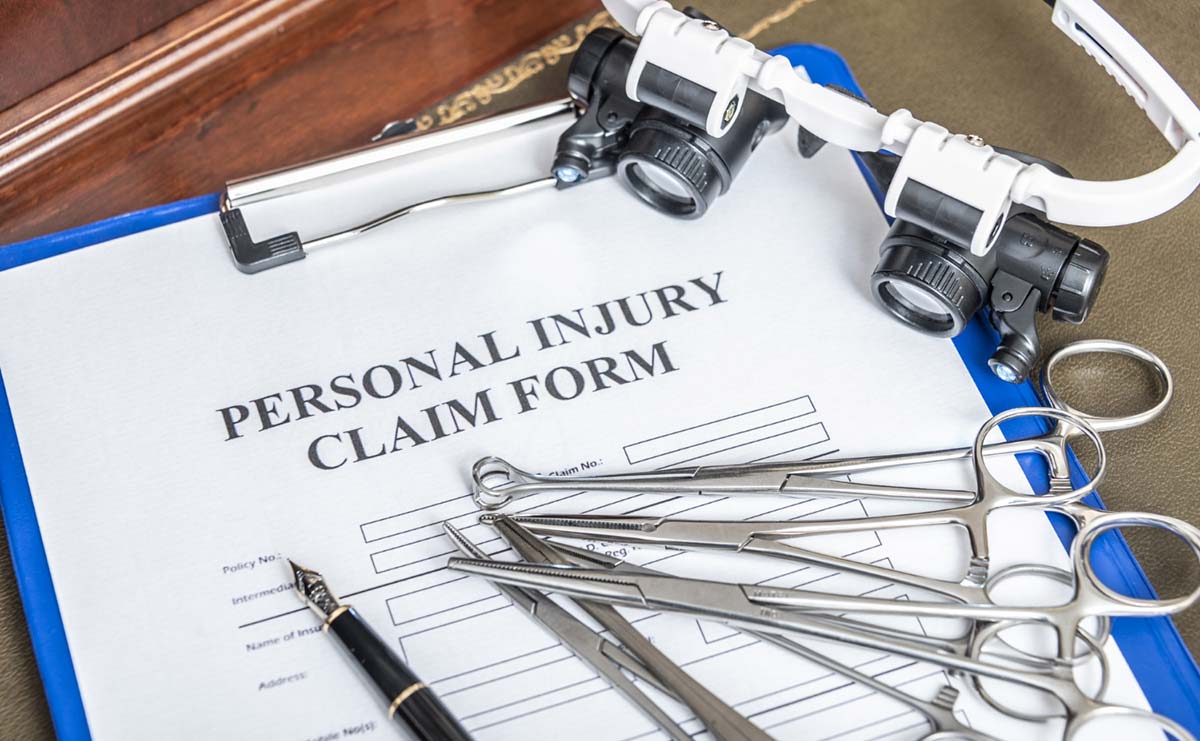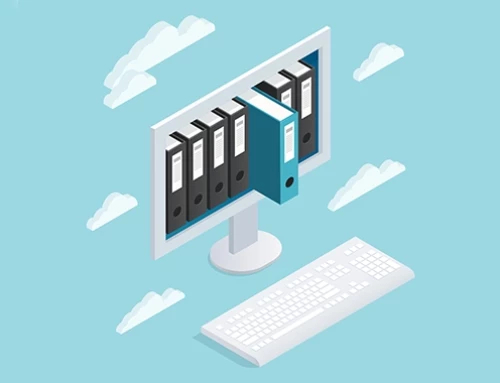Contents
What is Mediation?
Mediation is an increasingly popular alternative to traditional court trials in personal injury cases, offering a collaborative and less adversarial approach to resolving disputes. Unlike a trial, where a judge or jury decides the outcome, mediation involves a neutral third-party mediator who facilitates discussions between the plaintiff and defendant, helping them reach a mutually acceptable settlement. This process is often faster, less expensive, and more private than going to court, making it an attractive option for those seeking to avoid the time, cost, and emotional toll of a trial. Understanding mediation’s role and benefits in personal injury cases is crucial for making informed decisions about how to pursue legal claims. Understanding how to prepare for mediation can significantly increase your chances of reaching a favorable settlement by ensuring you are well-organized and fully informed.
Understanding the Basics of Trial and Mediation in Personal Injury Cases
When dealing with personal injury cases, it is crucial to understand the basics of both trial and mediation, as these are two common avenues for resolving disputes. Each process has its own advantages and is suitable for different scenarios, depending on the specifics of the case.
A trial is a formal legal process where the dispute is presented before a judge or jury. Both parties—the plaintiff (the injured party) and the defendant (often an insurance company or individual accused of causing the injury)—present evidence, call witnesses, and make arguments to support their case. Trials are conducted in a courtroom, following strict procedural rules and legal standards. The plaintiff must prove their case by a preponderance of the evidence, meaning it is more likely than not that the defendant is responsible for the injuries. Trials are typically public, and the proceedings and outcomes are a matter of public record. The outcome of a trial is a legally binding decision, either in favor of the plaintiff or the defendant, which may include a financial award for damages. However, trials can be time-consuming and expensive, often taking months or even years to reach a conclusion.
Mediation, on the other hand, is a less formal process that involves a neutral third party—the mediator—who helps the plaintiff and defendant negotiate a settlement. Unlike a trial, mediation is a collaborative process aimed at reaching a mutually agreeable resolution. Mediation sessions are private and confidential, with discussions not becoming part of the public record. Both parties voluntarily participate in mediation, and they have control over the outcome, as the mediator does not impose a decision. Mediation allows for more creative solutions and flexibility in terms of settlement options compared to a trial. It is generally faster and less expensive than going to trial, making it an attractive option for many personal injury cases. The outcome of mediation is not binding unless both parties agree to a settlement and sign an agreement. If mediation fails, the case can still proceed to trial.
The decision to pursue a trial or mediation depends on various factors, including the complexity of the case, the willingness of both parties to negotiate, and the desired outcome. A trial might be necessary when there is a significant dispute over the facts, liability, or the amount of compensation, and the parties are unable to reach an agreement through negotiation or mediation. On the other hand, mediation is often preferred when both parties are open to negotiation and seek a quicker, less adversarial resolution. It is also beneficial when preserving relationships or privacy is important. Understanding these basics helps personal injury plaintiffs make informed decisions about how to proceed with their case, whether they are best served by the certainty of a trial or the collaborative potential of mediation.

Advantages and Disadvantages of Going to Trial
Going to trial in a personal injury case has both advantages and disadvantages and understanding these can help individuals make informed decisions about whether to proceed with litigation.
Advantages of Going to Trial
Potential for Higher Compensation: One of the primary advantages of going to trial is the possibility of receiving a higher compensation amount than might be offered in a settlement. Juries may award substantial damages, especially in cases where the plaintiff’s injuries are severe, or the defendant’s actions were particularly egregious.
Public Vindication: A trial offers a public forum where the plaintiff can present their case, which can lead to a sense of vindication, especially if the court rules in their favor. This public acknowledgment of wrongdoing by the defendant can be important for some plaintiffs.
Legal Precedent: A favorable verdict in a trial can set a legal precedent, potentially benefiting others in similar situations. This can be particularly important in cases involving new or complex legal issues.
Finality: A trial concludes with a legally binding decision, providing finality to the dispute. Once a verdict is reached, and if not appealed, the case is settled, allowing both parties to move forward.
Disadvantages of Going to Trial
Time-Consuming: Trials can be lengthy, sometimes taking months or even years to reach a conclusion. This extended timeline can be stressful for the plaintiff, who may be waiting for compensation while dealing with the aftermath of their injuries.
Expensive: The costs associated with going to trial can be significant. Legal fees, expert witness costs, and other related expenses can quickly add up, potentially reducing the net compensation the plaintiff receives.
Uncertainty: Trials are inherently unpredictable. Even with a strong case, there is no guarantee of a favorable outcome. A judge or jury might not rule in the plaintiff’s favor, resulting in no compensation or a lower amount than anticipated.
Emotional Toll: The trial process can be emotionally taxing. Plaintiffs may have to relive traumatic experiences as they present their case, and the adversarial nature of a trial can add to the stress and anxiety.
Public Exposure: Since trials are typically public, personal details about the plaintiff’s life and injuries may become part of the public record. This lack of privacy can be uncomfortable or even harmful, especially in sensitive cases.
The Benefits of Mediation in Personal Injury Cases
Mediation offers several benefits in personal injury cases, making it an attractive alternative to litigation for many plaintiffs and defendants. The mediation process steps involve a neutral third party, known as a mediator, who facilitates negotiations between the injured party (plaintiff) and the party responsible for the injury (defendant). Here are the key benefits of opting for mediation:
Cost-Effective Resolution: One of the most significant benefits of mediation is its cost-effectiveness. Mediation typically requires less time and fewer resources than going to trial. By avoiding lengthy court proceedings, both parties can save on legal fees, court costs, and other associated expenses, making it a more affordable option.
Faster Settlements: Mediation generally leads to quicker resolutions compared to the trial process. Because it bypasses the complexities of formal litigation, mediation can often be scheduled and completed in a matter of weeks or months, whereas trials can drag on for years. This expedited process allows plaintiffs to receive compensation and move on with their lives sooner.
Flexibility in Solutions: Unlike a trial, where the outcome is determined by a judge or jury, mediation offers the flexibility to craft creative and tailored solutions that satisfy both parties. The informal nature of mediation allows for negotiations that can consider the unique circumstances of the case, leading to more personalized and mutually acceptable agreements.
Confidentiality: Mediation is a private process, and the discussions and outcomes are confidential. This confidentiality can be particularly important for parties who wish to keep the details of the case, including any settlements, out of the public eye. This contrasts with trials, where proceedings and verdicts are typically part of the public record.
Reduced Stress and Emotional Impact: The adversarial nature of trials can be emotionally draining for plaintiffs, especially when they are required to recount traumatic events in a public setting. Mediation, on the other hand, is a more collaborative process that encourages open communication and cooperation. This less confrontational approach can help reduce the emotional toll on all parties involved.
Control Over the Outcome: In mediation, the parties have more control over the outcome compared to a trial, where the final decision rests with a judge or jury. Both the plaintiff and the defendant can actively participate in crafting a settlement agreement that works for them, rather than having a resolution imposed upon them.
Preservation of Relationships: In cases where the parties have an ongoing relationship, such as in business disputes or situations involving family members, mediation can help preserve these relationships. The cooperative nature of mediation fosters communication and can lead to a more amicable resolution, reducing the likelihood of lingering resentment.
Voluntary and Non-Binding: Mediation is a voluntary process, meaning both parties must agree to participate. Additionally, the outcome of mediation is non-binding unless both parties agree to the terms of the settlement. This allows the parties to explore the possibility of a settlement without the risk of being forced into an agreement they are not comfortable with.
Factors to Consider When Choosing Between Trial and Mediation
Choosing between trial and mediation in a personal injury case is a significant decision that can impact the outcome, cost, time, and emotional toll of the legal process. Several factors should be carefully considered to determine which path is most appropriate for a particular case. Here are the key factors to consider:
Nature and Complexity of the Case
The complexity of the case plays a crucial role in deciding whether to go to trial or opt for mediation. Cases involving complex legal issues, substantial disputes over facts, or significant financial stakes may require the thorough examination and legal rigor of a trial. On the other hand, simpler cases with clear liability and damages might be more effectively resolved through mediation.
Cost Considerations
Cost is often a primary concern for plaintiffs, especially when dealing with the financial burden of injuries. Trials can be expensive, involving legal fees, court costs, expert witness fees, and other related expenses. Mediation, being a more informal process, typically costs less and is completed faster, reducing the financial strain on both parties.
Time Frame
The time it takes to resolve the case is another critical factor. Trials can be drawn-out processes, often taking months or even years to conclude, especially if appeals are involved. If a quicker resolution is desired or needed, mediation offers a faster alternative, with many cases being settled within weeks or months.
Emotional and Psychological Impact
The emotional and psychological toll of litigation can be substantial. Trials are adversarial, public, and often stressful, requiring plaintiffs to relive traumatic experiences. Mediation, however, is more collaborative and private, offering a less confrontational environment that can reduce stress and allow for a more amicable resolution.
Desire for Privacy
Privacy is another important consideration. Trial proceedings are generally public, meaning that case details, testimonies, and the final verdict are part of the public record. If maintaining confidentiality is a priority, mediation is the better option, as it is a private process where discussions and settlements are not disclosed to the public.
Control Over the Outcome
In a trial, the final decision is in the hands of a judge or jury, leaving both parties with little control over the outcome. Mediation, however, allows both the plaintiff and defendant to have a direct say in the resolution, leading to a settlement that can be more tailored to their specific needs and circumstances.
Likelihood of Settlement
Mediation is often a suitable option if both parties are open to negotiation and willing to compromise. It works best when there is a reasonable chance of reaching a mutually acceptable settlement. However, if one party is unwilling to negotiate or if there is a significant dispute over key issues, a trial may be necessary to achieve a fair outcome.
Legal Precedent
In some cases, plaintiffs may seek to establish a legal precedent, which can only be achieved through a trial. This is particularly relevant in cases involving new or complex legal questions where the outcome could have broader implications beyond the immediate parties involved.
Risk Tolerance
The inherent risks of a trial, including the possibility of an unfavorable verdict, must be weighed against the potential benefits. Mediation offers a less risky approach since it allows for more control and predictability. If the plaintiff or defendant is risk-averse, mediation may be the preferred choice.
Relationship Between the Parties
In situations where the parties have an ongoing relationship (such as business partners or family members), mediation may be preferable as it promotes cooperation and can help preserve the relationship. Trials, with their adversarial nature, can damage or sever these relationships.
When Is Trial the Better Option for a Personal Injury Case?
Choosing to go to trial in a personal injury case is a significant decision, and while mediation or settlement is often preferred for its speed and cost-effectiveness, there are situations where a trial may be the better option. Here are the circumstances under which pursuing a trial might be more advantageous:
Significant Disputes Over Liability
When there is a substantial disagreement over who is at fault for the injury, a trial may be necessary to resolve the issue. If the defendant denies responsibility or if the evidence is complex and requires detailed examination, a trial allows both sides to present their case fully. The judge or jury can then make a determination based on the evidence presented.
Severe or Catastrophic Injuries
In cases involving severe or catastrophic injuries, where the compensation amount is likely to be substantial, a trial may be the better option. Defendants, particularly insurance companies, may offer settlements that are far below what the plaintiff deserves. Going to trial allows the plaintiff to seek a fair and full compensation amount, which may include not only medical expenses and lost wages but also pain and suffering, future care costs, and other damages.
Desire for Legal Precedent
If the case involves new or complex legal issues, the plaintiff may wish to establish a legal precedent that could benefit others in similar situations. A trial provides the opportunity for a court decision that could set a precedent, influencing future cases with similar circumstances.
Defendant’s Refusal to Settle Fairly
If the defendant or their insurance company refuses to offer a reasonable settlement, a trial may be the only way to achieve a just outcome. Some defendants may be unwilling to negotiate in good faith or may offer settlements that do not adequately compensate for the plaintiff’s injuries. In such cases, a trial allows the plaintiff to argue for a fair award before a judge or jury.
Complexity of Damages
When the damages are complex or difficult to quantify, such as in cases involving long-term disability, ongoing medical care, or significant pain and suffering, a trial may be necessary. Expert testimony and detailed evidence can be presented in a trial to ensure that all aspects of the plaintiff’s damages are fully considered and compensated.
Uncertainty of Mediation
If mediation efforts have failed or if there is little hope that the parties can reach a settlement through negotiation, a trial may be the better option. In situations where the parties are far apart in their views on the case, or where trust has broken down, a trial provides a structured process with a clear resolution.
Desire for a Binding Decision
A trial results in a legally binding decision, which can provide finality to the dispute. If a plaintiff seeks a conclusive outcome that cannot be easily challenged or renegotiated, a trial offers the certainty of a court-ordered verdict. This can be particularly important in high-stakes cases where the plaintiff wants to avoid further disputes or appeals.
Cases Involving Punitive Damages
In situations where the defendant’s conduct was particularly reckless or malicious, the plaintiff may seek punitive damages in addition to compensatory damages. Punitive damages are intended to punish the defendant and deter similar conduct in the future. These damages are typically only awarded in a trial, making litigation the appropriate path when punitive damages are sought.
How Mediation Works in Personal Injury Claims After a Car Accident
Mediation is a common method for resolving personal injury claims following a car accident. It is an alternative dispute resolution process that helps the parties involved (typically the injured party and the at-fault party or their insurance company) negotiate a settlement without going to trial. Here’s how mediation works in personal injury claims after a car accident:
Initiating the Mediation Process
Mediation usually begins after the parties involved in the car accident have exchanged information and completed the discovery process, where both sides gather evidence and facts about the accident. Either party can request mediation, or it may be ordered by the court as part of the pre-trial process. Both parties must agree to participate in mediation, as it is a voluntary process.
Choosing a Mediator
Once both parties agree to mediate, they select a mediator. The mediator is a neutral third party, often an experienced attorney or retired judge, who is trained in facilitating negotiations. The mediator does not take sides or make decisions but instead helps guide the discussion and assists the parties in reaching a mutually acceptable settlement.
Preparing for Mediation
When considering how to prepare for mediation, it is essential to gather all relevant documents, evidence, and information related to the car accident and the injury claim. This may include police reports, medical records, repair estimates, and any other evidence that supports their case. Attorneys for both sides often prepare briefs outlining their arguments and desired outcomes, which they may share with the mediator beforehand.
The Mediation Session
The mediation session usually begins with an opening statement from the mediator, explaining the process and setting the ground rules. The mediator may then ask each party to make an opening statement, where they outline their perspective on the case and what they hope to achieve through mediation. After the opening statements, the mediation process typically moves into a more informal and flexible discussion phase. The mediator may conduct joint sessions, where both parties are present, or private sessions (called caucuses), where the mediator meets with each party separately. In these private sessions, the mediator can explore each party’s concerns, interests, and willingness to compromise.
Negotiation and Compromise
During mediation, the mediator facilitates negotiation by encouraging open communication, exploring options for settlement, and helping the parties find common ground. The mediator may suggest possible settlement amounts or terms but does not impose any decisions. The goal is for both parties to reach a mutually acceptable agreement that resolves the personal injury claim.
Reaching a Settlement
The average settlement offers during mediation can vary widely depending on the specifics of the case, but they often reflect a compromise between the plaintiff’s demands and the defendant’s willingness to pay. If the parties reach an agreement during mediation, the terms of the settlement are put in writing and signed by both parties. This settlement agreement is legally binding, and it typically includes a release of liability, meaning the plaintiff agrees not to pursue further legal action related to the car accident in exchange for the agreed-upon compensation.
If Mediation Fails
If mediation does not result in a settlement, the parties are free to pursue other legal avenues, including going to trial. However, even if mediation does not lead to a settlement, it often helps clarify the issues and may make later negotiations or a trial more efficient.
The Role of Evidence in Trial vs. Mediation
While evidence is critical in both trial and mediation, its role, presentation, and impact vary significantly between the two. Evidence in a trial is presented under strict legal rules and is subject to rigorous examination and challenge. In mediation, evidence is used more informally to facilitate discussions and negotiations. In a trial, evidence serves to convince the judge or jury of the merits of one side’s case. In mediation, it is used to help both parties understand each other’s positions and reach a settlement. The evidence in a trial directly influences the final verdict, while in mediation, it influences the terms of the settlement. The impact of evidence in mediation is more about guiding the negotiation process than determining a winner or loser.
Legal Representation: What to Expect in Trial vs. Mediation
Legal representation in trial and mediation serves different purposes and involves distinct strategies. In a trial, your attorney’s role is highly formal and adversarial, focusing on winning the case by presenting compelling evidence and legal arguments. In mediation, the role is more collaborative and focused on negotiation, with an emphasis on finding common ground and crafting a mutually agreeable solution.
In a trial, the outcome is determined by a judge or jury, and your attorney’s goal is to persuade them in your favor. In mediation, you have more control over the outcome, and your attorney’s role is to guide you in negotiating terms that align with your interests.
Mediation allows for more flexibility in terms of solutions and outcomes, with your attorney working to achieve a settlement that meets your specific needs. In contrast, a trial has a more rigid structure, with a clear winner and loser based on the court’s decision.
Conclusion
In conclusion, deciding between trial and mediation for resolving personal injury cases after a car accident requires careful consideration of the unique circumstances of each case. While mediation offers a faster, more cost-effective, and private resolution with the potential for preserving relationships, a trial may be necessary when significant disputes over liability exist, the injuries are severe, or a legal precedent is sought. By weighing the advantages and disadvantages of both approaches, plaintiffs can make informed decisions that align with their goals, risk tolerance, and desire for control over the outcome. Ultimately, the choice between trial and mediation depends on the specific needs and priorities of the parties involved.
Disclaimer: The content provided on this blog is for informational purposes only and does not constitute legal, financial, or professional advice.







